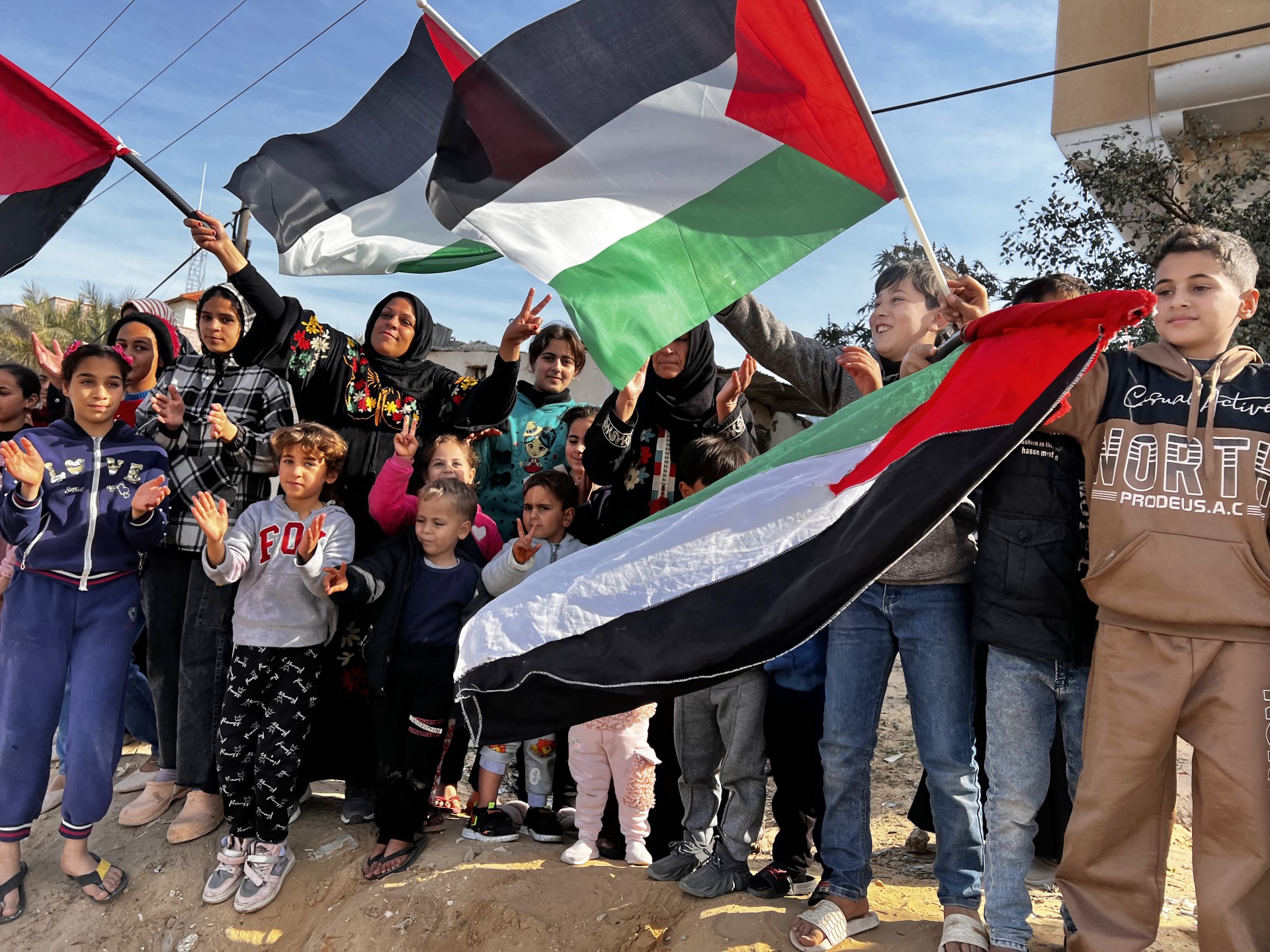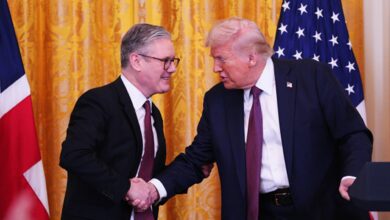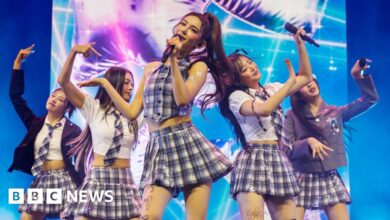At the EU’s external border in Bulgaria, the refugee horror story continues | Refugees

“She was about to die. It took six hours the last time we dug a grave for one of the Syrian refugees we found in the forest. Should we have just started digging?” Thomas asked, searching my face desperately for an answer. It was the morning after this particularly horrific encounter, and it was clear he needed to talk to someone.
Thomas and I were providing health services to refugees and asylum seekers in Harmanli, a small Bulgarian town near the Bulgarian-Turkish border.
Medical care was supposed to be provided by a large international NGO in the city’s refugee camp, but their doctor was rarely present and was unwilling to provide anything but the most rudimentary care.
Since other organizations were not allowed into the camp, I and the two NGOs volunteering with Thomas set up a medical station in a nearby park. We provided diagnosis and treatment for conditions such as viral upper respiratory infections, gastroesophageal reflux disease (GERD), pneumonia, scabies, and bedbug bites, but most of what we did was wound care.
Many refugees and asylum seekers walked for days or weeks through dense forests, rapid rivers and dangerous mountain passes to reach Bulgaria, and as a result sustained injuries all over their bodies. Once there, they are placed in refugee camps or detention centers where scabies and bedbugs are common. Most wounds become infected in this environment. With inadequate nutrition – I heard from many that the food given was often riddled with maggots – there was little hope of healing the wounds.
Thomas’s NGO often volunteered for search and rescue missions in the dense and dangerous forests that refugees and asylum seekers had to cross to get from Türkiye to Bulgaria. Many died trying to cross. When their families could not be found, and Islamic burial rites that require bodies to be buried quickly were not respected, many of these refugees ended up being buried by strangers in a distant land in unmarked graves. Even in death, there was little dignity.
After a few hours of resuscitation efforts, the Syrian refugee Thomas met that night was able to continue walking for a short period. A few days later, we heard that a body matching her description had been found in the woods.
I had nearly 10 years of experience doing this type of work, but when Thomas and I talked about what he had seen that night, I found that I had no words of wisdom for him. I felt the same pain I saw written on his face.
We were trying to provide medical care to a group of refugees and asylum seekers who had fled some of the world’s most violent conflicts in places like Syria and Afghanistan, only to face further violence perpetrated by Frontex and European border police.
These are some of the stories I heard while working in Bulgaria, a member of the European Union, in the late summer of 2024.
I met Muhammad under a tree in the park near the Harmanli refugee camp. He had wounds that looked suspicious. He had angry red bruises all over his back, as if he had been whipped repeatedly. I can’t help but think I only saw this kind of wound in textbooks when I was learning about the brutal transatlantic slave trade. I started by cleaning the wounds and gently applying the ointment.
I asked him if he would be willing to give testimony, which I would then hand over to the Border Violence Monitoring Network, a coalition of organizations that document human rights violations in border areas. He agreed.
I needed a translator. So I called my friend, Dr. Nasser, an Afghan refugee I worked with when he and his family were there They were living In prison-like camps on Lesvos. He translated the story of Muhammad from Dari into English and I listened to him with interest.
Muhammad was from Jalalabad. Decades of war, poverty and famine have left his hometown in ruins. He ran away hoping to find safety and be able to earn some money to send to Afghanistan so his family wouldn’t starve. It took weeks to cross through Iran and Turkey to reach the Bulgarian border. In a place where many refugee camps and detention centers are filled with swastikas and “Migrants are leaving now!” Graffiti, he felt that there were few opportunities for integration in Bulgaria. Therefore, a few weeks before our meeting, he left on foot for Serbia, hoping to reach Germany via the Balkan route.
On the Bulgarian-Serbian border, Serbian border police arrested him and beat him for hours, alternating between iron fists and whips. Muhammad found it difficult to walk after meeting them. He was missing several fingernails. Serbian border police officers pulled them out one by one.
Up until that point, Muhammad had been stoic in telling his story, occasionally whimpering when the iodine solution stung. Dr. Nasser told him that we would be his witnesses on the Day of Resurrection, and that his suffering would not go unnoticed. At that moment, I looked up to assess the stitches on his forehead, where the Serbian border police beat him repeatedly, and saw his gentle hazel eyes filled with tears upon hearing Dr. Nasser’s words.
After treating Muhammad’s wounds, Ahmed received me with his hand on his heart and a warm “peace.” Ahmed lived in the camp and volunteered to be our Arabic translator. He had a kind smile and pure morals. Before fleeing Syria, he was an ambulance driver and volunteer for the Syrian Arab Red Crescent in the worst-affected areas of Deir ez-Zor.
He showed me pictures on his phone of his life in Syria – where he taught mechanical engineering to a group of enthusiastic students. He was quickly scrolling through photos and videos. One of them was trying to rescue an infant whose head had been partially severed by a drone attack. I wondered what made him want to help his fellow refugees when he had already seen so much. I have always been amazed by how refugees care about each other.
Soon a young Syrian woman wearing a niqab approached the tent, where we diagnosed and treated women and performed physical examinations that required more privacy than the park allowed. Halima, who was in her late twenties, told me she felt dizzy. She and her husband decided to go on a dangerous journey from Syria via Türkiye to Bulgaria while she was 28 weeks pregnant with triplets. Despite her pregnancy, she was repeatedly beaten by smugglers who were trying to get her to walk faster. Once she arrived on Bulgarian territory, an NGO helped take her to the hospital where she gave birth to three dead babies.
I took her vitals and gave her a women’s multivitamin and some hygiene products. I felt completely inadequate. I couldn’t even begin to comprehend everything I had lost. She hugged me with gratitude and her lips silently moved to pray for me and my family.
Later, I met Yasmine, a 17-year-old Syrian girl, and her elderly father, Ali. Yasmine was suffering from rheumatic heart disease due to a bout of strep throat she had suffered a few years earlier. Strep throat is something that, under normal circumstances, would be easily treated with a course of antibiotics. But years of war in Syria have left the healthcare infrastructure in disarray, depriving many like Yasmine of basic treatment and condemning them to a life of chronic illness. There was only so much I could offer. The monthly penicillin injections she needed for secondary prophylaxis were not available in Bulgaria.
I had more luck purchasing her father’s diabetes medications from a local pharmacy using donations from my family and friends. After we met to give him several months’ worth of medication, Uncle Ali, as I called him, asked us to come for tea. This was not the first time I had been invited to the refugee home. However, I was always surprised by this warmth and hospitality even in very difficult circumstances.
The next day, the medical coordinators and I returned to Sofia. We had a clinic there where we provided free medical care to refugees and asylum seekers who arrived in the capital. During Friday prayers, I walked to an Ottoman-era mosque in central Sofia where I met a Syrian Kurdish family: Aunt Fatima and Uncle Hamza.
They were excited when they heard I was a “guest” from Canada and insisted on having me for lunch. Aunt Fatima prepared a feast of chicken and rice with yogurt salad and we enjoyed it with their 15-year-old son, Hussein, on the floor of their modestly furnished apartment. It pained me that this meal was eating into their savings.
Uncle Hamza was in his sixties and moved uncomfortably from side to side due to degenerative disc disease that had developed during years of hard work in Sudan. For nearly a decade, he worked there as a construction worker to save money while the war raged around his family in Syria.
When fighting reached untenable levels in his hometown, the soft-spoken Hussein made the treacherous journey alone from Syria to Türkiye to Bulgaria. As an unaccompanied minor, he was able to bring his parents back from Syria after almost two years as part of a family reunification programme.
As our meal came to a close, I looked at my phone to try to figure out how to get back to the mosque through the maze-like streets of Old Sofia. Hussein shyly offered to accompany me. As we walked back, he told me that he dreamed of becoming an English teacher. While waiting two years to be reunited with his parents, he taught himself English and Bulgarian. I wondered how much he would have been able to achieve if his circumstances had been different, and if he had had access to secondary education like other children his age.
A week later, it was time to leave. While I was waiting at Sofia airport for my flight back to Canada, the Bulgarian border police repeatedly asked me to present my “documents.” I looked around and realized that I was the only Muslim woman at the airport and no other traveler had been subjected to similar harassment.
Police often do the same around the mosque in Sofia and countless other places where refugees and asylum seekers seek relief in a country with constant hostility and attacks by white supremacist groups.
I started unconsciously adjusting my hijab, thinking that if I looked well-dressed enough, maybe the police wouldn’t mistake me for a refugee or asylum seeker. I immersed myself in this thought process and realized something: I would consider myself lucky if I had sinned against Muhammad, Ahmed, Halima, Yasmine, Ali, Hussein or Fatima, as they are the greatest examples of kindness, courage, generosity and fortitude. The humanity I knew.
The names of all refugees and asylum seekers mentioned in this article have been changed to protect their identities.
The opinions expressed in this article are those of the author and do not necessarily reflect the editorial position of Al Jazeera.
https://www.aljazeera.com/wp-content/uploads/2025/01/AFP__20140121__Par7769640__v1__Preview__BulgariaSyriaRefugees-1736171396.jpg?resize=1200%2C675
2025-01-06 13:57:00





